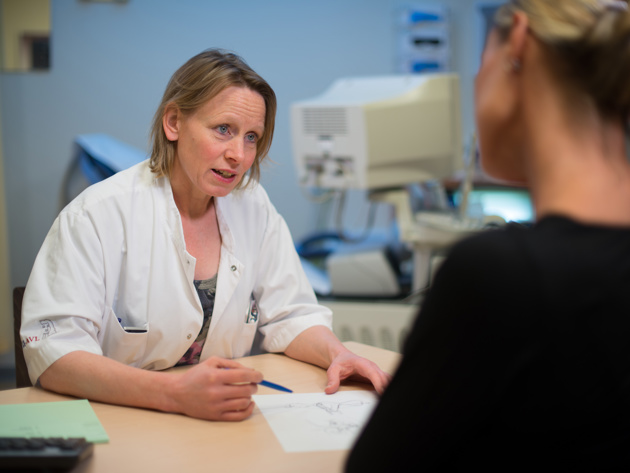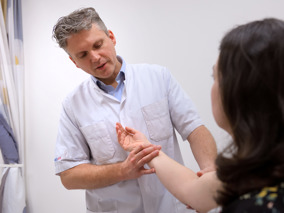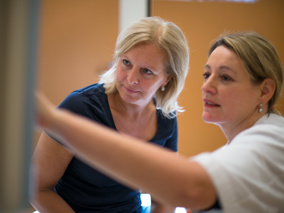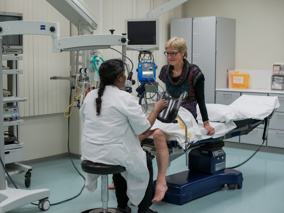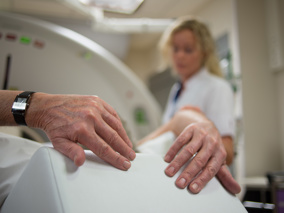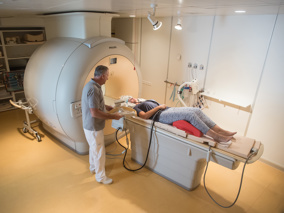Uterine cancer
Uterine cancer is cancer that originates in the lining of the uterus. This cancer mainly occurs after menopause. Some women are more likely to develop uterine cancer because of their genetics: they have lynch syndrome. Women with this syndrome are more likely to develop cancer of the uterus, ovaries or intestines.
Read about the symptoms, examinations and treatments for uterine cancer on this page.
More information about uterine cancer
Causes of uterine cancer
Being overweight, diabetes (diabetes mellitus) and high blood pressure can increase the risk of uterine cancer, as can having a genetic abnormality (the Lynch Symbol)
Symptoms of uterine cancer
Cancer in the uterus can cause various signs and symptoms. The most important and common complaint is blood loss or brownish discharge after menopause. Other complaints may include:
- Bellyache
- Being tired
- Losing weight for no reason
Waiting
We want to inform you as well as possible about the waiting time per condition. We do this based on a prognosis of the current waiting list. The waiting time can vary from patient to patient for various reasons. Your attending physician will give you more information during your outpatient consultation.
-
6 days
First appointment
This is approximately how long it will take until you have your first appointment
-
11 days
Rapid diagnostics
This is approximately how long it will take before you can start rapid diagnostics at the NKI
-
9 days
Second opinion
This is approximately how long it will take before you come in for a second opinion at the NKI
 nl
nl
